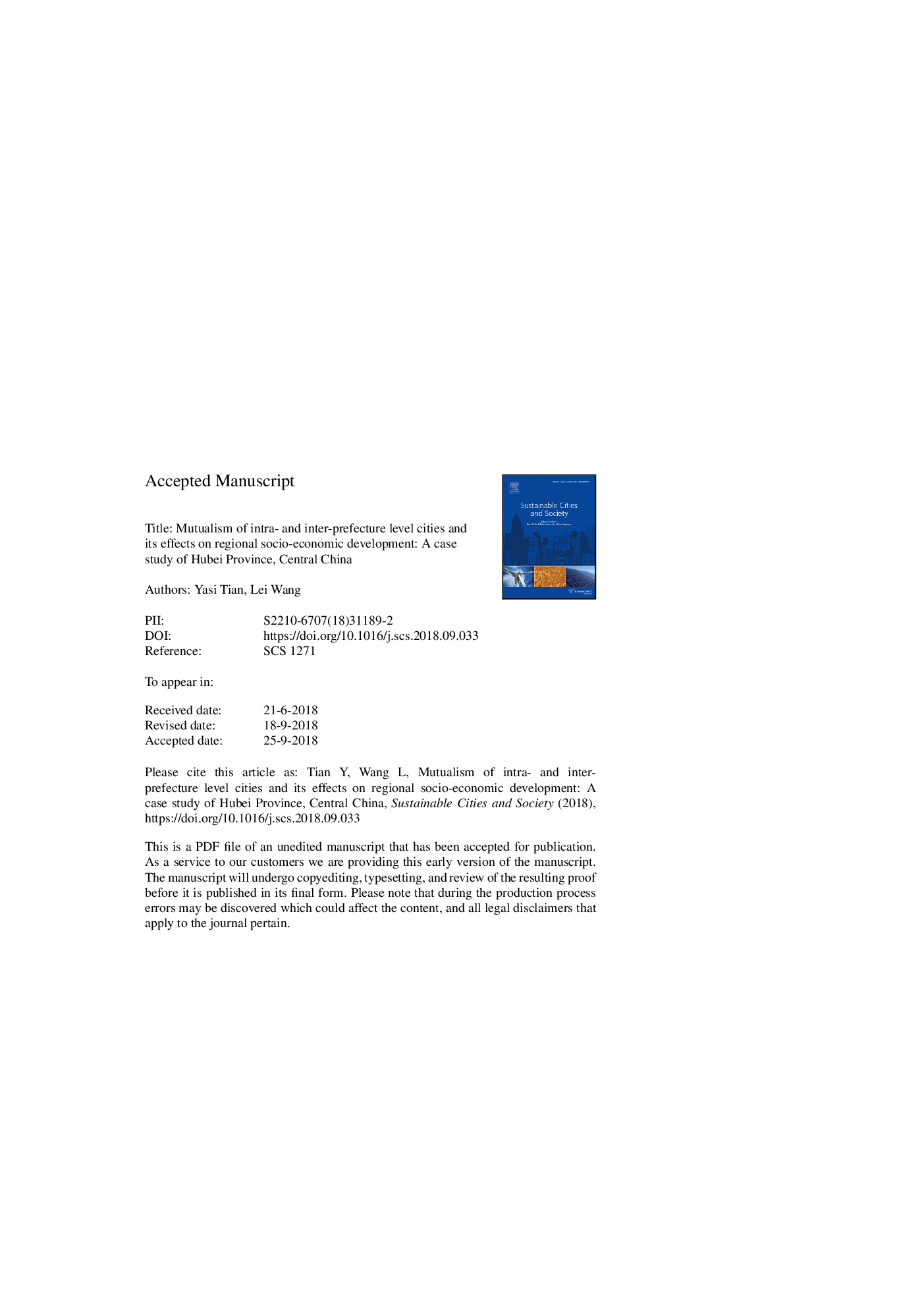| Article ID | Journal | Published Year | Pages | File Type |
|---|---|---|---|---|
| 11012556 | Sustainable Cities and Society | 2019 | 26 Pages |
Abstract
Regional social and economic interactions are proved to be related with local development, however, the relations of such interactions with regional development imbalance are usually neglected. By utilizing symbiotic theory, this paper mainly analyzes the effects of mutualistic relation of intra- and inter- prefecture level cities on regional socio-economic development imbalance. Since mutualism denotes a reciprocal and sustainable relationship among cities and from which cities gain benefits, two hypotheses are proposed. The first hypothesis postulates that mutualism of intra-prefecture level city is positively correlated with its coordinated development. The second one suggests that mutualism of inter-prefecture level cities has positive effects on balanced development of the province. Methods of comprehensive evaluation and social network analysis are adopted to identify mutualism among cities. Real mutualism is estimated from people flow data which is extracted from train and public bus timetable to verify the identified mutualism. With verification of the two hypotheses, a model of dealing with regional imbalanced development in the framework of mutualism is proposed. This study contributes to understanding the mutualism of both intra- and inter-prefecture level cities, analyzing the effects of mutualism on regional socio-economic development imbalance, and offering a new perspective on promoting regional stable and sustainable development.
Related Topics
Physical Sciences and Engineering
Energy
Renewable Energy, Sustainability and the Environment
Authors
Yasi Tian, Lei Wang,
